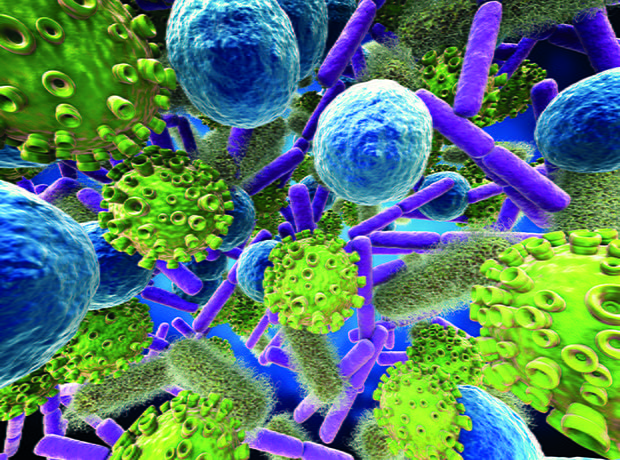There are trillions of microbes living in your digestive tract and they are responsible for almost your entire health condition.

If you’re feeling lonely, irritated, bloated, or stressed, the chances are that you can trace back the root cause to your gut. Additionally, up to 80 percent of your immune system is located in your gut.
The gut microbiome has good bacteria and bad bacteria. They help your body digest foods, absorb nutrients, and keep each other in check to fight off infections. The truth is, the ‘bad’ bacteria are mostly only bad when their numbers increase beyond their ‘normal’ levels.
If there is an imbalance of bacteria in the gut microbiome, such as having an an overload of bad gut bacteria, it can lead to all sorts of illnesses. Therefore, it is important to know the signs of an unhealthy gut.
Take note of these signs and remember that your gut health could be the problem if you experience any of the following.
Digestive Problems
Bloating, gas, constipation, and diarrhea are some of the common signs of an unhealthy gut. These suggest that the number and diversity of microbes in your stomach are not right, affecting your ability to break down foods, absorb nutrients, and eliminate waste. You may also have insufficient acid for digestion.
Extra Cravings For Sugar
Do you tend to eat a high-sugar diet? That’s because gut bacteria release special proteins that cause you to hunger for the food they thrive on. So when you have extra cravings for the sweet stuff, the chances are that there is already an excess of bad gut bacteria, and they want to be fed! Too much sugar can lead to inflammation, which is a precursor to various diseases.
Chronic Bad Breath
Halitosis, or chronic bad breath, is another classic sign of bad gut bacteria. You may especially notice the bad breath after eating sugary foods because that’s what bad bacteria, yeast, and candida feed on.
Food Sensitivities
When the balance of good and bad bacteria is off, you will have difficulty digesting certain foods, such as gluten and dairy. You may experience food intolerances and food allergies. They happen when the gut barrier could be leaking large protein molecules to the bloodstream when they’re not supposed to, so the body activates an immune response to attack them.
Emotional Health Issues
Your stomach may be far from your brain, but your mental health is actually linked to your gut health. Your mental health relies on the micronutrients that the gut supplies. So, when the gut microbiome is off-balance, it affects your ability to produce certain hormones that make you feel good, such as serotonin and dopamine. Compromised gut health can lead to mood swings, anxiety, and depression.
Skin Irritation
Believe it or not, your gut health also has something to do with skin problems. Bad gut bacteria can cause inflammation, which then results in leaking proteins to the bloodstream. Because of this, you may experience skin irritation, such as eczema, acne, and rosacea.
Fatigue and Poor-Quality Sleep
Much of your body’s serotonin, which is responsible for your mood and sleep, is produced in the gut. So, when you have a compromised gut, serotonin production is affected. This can cause difficulty in getting enough sleep, which then negatively affects your mood. Insufficient serotonin can also trigger depressive symptoms.
Disrupted Immunity
Gut health is linked to your immunity. When you have bad gut bacteria, it can cause inflammation and lead to an autoimmune disorder. It pertains to the condition wherein the body attacks itself, mistaking it as foreign or an invader.
Lose or Gain Weight Unexpectedly
Another sign of bad gut bacteria is unintentional changes in your weight. You could be gaining or losing weight even when you haven’t been changing your lifestyle, diet, or exercise habits. A messed-up microbe diversity can hinder proper absorption of nutrients, regulation of blood sugar, and fat storage.
It is clear that gut health is responsible for various aspects of your health, which is why it is important to keep it in the best condition possible.
Keep in mind these signs of bad gut bacteria, and when you begin to experience them, act fast in getting your gut health back in shape. Change your diet, get enough sleep, exercise more, reduce your stress levels—there are plenty of ways to keep your gut healthy.




